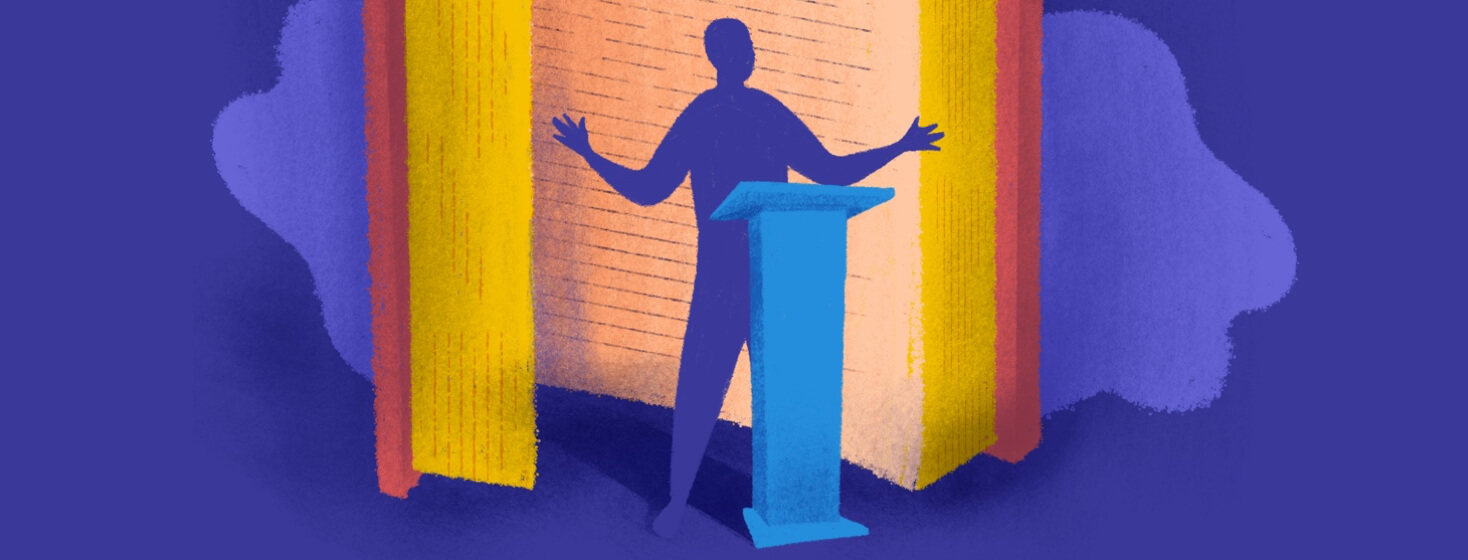Tell Your RLS Story
I’d like to issue a challenge to you. Tell someone your story. Tell them about your restless legs.
The road to diagnosis and treatment can be long
It took me 20 years to get a diagnosis of restless legs syndrome (RLS) and probably another 10 years to find a medication that worked for me. Some of you still have not found something that allows you to get a good night’s sleep. It frustrates me on your behalf.
The first doctor I told said about my sleeplessness said it was all due to anxiety. He said anxiety was why people couldn't sleep 95 percent of the time. I knew myself. It wasn’t that I never felt anxiety, but there was no correlation between my level of anxiety and my sleep. In fact, I tended to sleep better if I was anxious.
I told the doctor I must be in the 5 percent for whom anxiety was not the reason. I don’t think he ever believed me and he offered no other possibilities. (A much older me stands by the knowledge of younger me. It was not anxiety.)
That doctor did give me my first prescription sleeping pills. They worked until they didn't. Then we’d try a new one. Even as I moved several times and saw different doctors, no one gave me any other options.
I probably tried every sleeping pill on the market
When I finally found the doctor who diagnosed my RLS about 20 years later, he did it within seconds of me explaining how my body was feeling when I couldn’t sleep. He prescribed a medication, but that medication was not right for my body. When I called him and told him it was making things worse (I wasn’t sleeping and felt sick all the time), he wouldn't consider other treatments.
While he diagnosed me well, he lost those listening skills and respect for me as a patient when I rejected what seemed to be his “one drug fits all” option for treatment. I now know even then there were other options. I went back to sleeping pills. As my old standby stopped working well, I probably tried every sleeping pill on the market, both prescription and over-the-counter.
We need to tell our stories — to clinicians and the world
Exasperated after a bout of sleeplessness, I was talking to my nurse practitioner and brought up my restless legs when we were discussing my current condition. She came up with another drug for me to try. An older one. It was my salvation. I’ve learned a lot about RLS over the years and am amazed that providers often know little about it, even now. Sometimes it’s up to us to tell them what we know and make sure they are using us as a vital part of our own medical team. We need to tell them our stories.
But that’s not enough. Many will not listen. How do we make sure they do? We tell our stories to the world. If you were to tell your story on social media, for example, I can almost guarantee someone will say, “I have it, too.” The more people who stand up and say “Me, too,” the more the medical community realizes this is something to which they need to pay attention. The more they hear about it, the more they will consider it as a diagnosis.
Our stories help to show that one size does not fit all
If you tell your story, you may give a possible solution to someone who, like me, could not get a correct diagnosis for their problem. Something many of us know well from talking with each other — restless legs doesn't always look the same. I, for example, was certain I did not have it because I did not move much at all when I slept. I just had this weird restless feeling in my body because my muscles needed to fire, but didn’t.
As we tell our story, we can let people know we have this community where we exchange knowledge, talk about our symptoms, and generally support each other as we deal with our condition. We want people to understand RLS. We want it to come to mind as medical and pharmaceutical researchers decide what they are going to study next. We want people diagnosed earlier. We want people to know one size does not fit all, either in symptoms or treatments.
Celebrating and teaching the essentialness of sleep
All people deserve a good night’s sleep. We deserve to sleep with our partners without keeping them awake or facing injuries from limbs gone wild. We deserve the ability to work fully functioning, and to socialize with family and friends while alert and reasonable.
So tell your story. To one person or many. Be a face of RLS - and more importantly a voice. Too many of us are still struggling. Sleep is essential for good physical, emotional, and spiritual health. As we celebrate it, let’s also educate people as to why some of us still aren’t sleeping our best - or why diagnosis and treatment means we now can.

Join the conversation